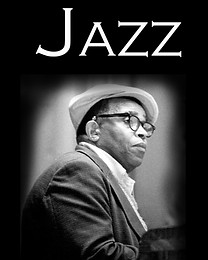

Miles Rothwell
Night Watchers was inspired by a dream i had while visiting Bali. The story is about essences, both real and imaginary. On an island where traditional ways are increasingly under siege by encroaching western influences, unseen essences known as Night Watchers support and protect life until the dawn of the new day. When a 'tear in the sky' occurs, the fabric of life begins to unravel and disturbances start affecting people's lives. An experienced official on the verge of retirement struggles with his inability to solve a gruesome murder. A mother and daughter are banished from village life. A man escapes from prison and a hired driver battles with the pain of losing his daughter ... the ‘tear in the sky’ impacts on them all. Seemingly unique and individual, each of these people will discover how interconnected they truly are in the land of the Night Watchers where nothing goes unobserved
cover photo by Rich Niewiroski Jr.

In Genius Remote, God orchestrates his Angels to search for the missing iconoclastic movie director - Terry Gilliam - who has abandoned the film adaptation of the most dense, polarising and misunderstood novel of our time - Gravity's Rainbow. Along the way, the Angels are side-tracked by memories of fallen Angels, meteor trackers, the inability of Gunther the Kinetic to stabilise a location for Heaven and a whole host of movie and TV characters in a surreal and often multi-dimensional narrative. The search leads to SE Asia where the Band U2 creates havoc before the final ascension that leads Terry Gilliam to the absolution of the world's sins.
Cover photo: Japanese Film Poster for Invasion of the Neptune Men
(Toei Company 1961)
Jazz is a snapshot of the life of Ben ‘Freddie’ Thurman who lives a quiet solitary existence playing piano in a jazz band at a Seoul Nightclub. When one of Freddie's neighbours is murdered, Freddie enters the shady underworld of Nightclub owners. The style is film noir based with references to the purity of Jazz performance and the search and dedication to justice.
cover photo by Lionel Decoster
...a fleeting glimpse... depicts the inner thoughts of Terence 'Teddy' Thorpe, a struggling writer deconstructing the way he perceives reality. He records his thoughts in a journal intended to be a parody of 'self-help' books in order to make a quick buck. The journal takes aim at money, politics and religion - the three pillars of western decay. Through the writing process Teddy exorcises the pain of the death of a childhood friend by transforming his memory into a character for his journal. Teddy meets Nikki Preston, a corporate career woman, who is dis-enchanted with her life. Their relationship sets them on a path which will change their lives. As Teddy researches his journal he delves into the themes and beliefs of the modern world. The tone of the novel is tongue-in-cheek, at times surreal. There are references to other literary works, music and art. The intention was to write an anti-novel while at the same time paying tribute to the masters of the past. Although there are dark elements to the novel ultimately the message is of hope and renewal epitomising the cyclic nature of the Universe...


Aimee Hamsun receives a phone call which throws her world into turmoil. Her seriously ill grandmother may not live till morning. Aimee decides to drive overnight instead of waiting for an early morning flight. Along the way Aimee reflects on her life. It is not always a pleasant recollection nor is it always accurate for the desire to strive for musical perfection creates a tumultuous and demanding mosaic of memory, regret and at times failure. Aimee takes the reader to where it all began. Inspired by her grandmother, Aimee's lifelong love of musical is more than a vocation, with no quarter given to compromise.
Will she get to the hospital in time, only time will tell?
Cover photo by Toni Frissell

Gotte Spake Musica is divided into sections. The first is set in the fictional town of Tremka in an undisclosed European country just as WWII is coming to an end. On a train platform a suitcase is found by the Station Master which sets off a chain of events that disrupts the sleepy town. The local gypsys believe in traditional folk stories - Mayas. In one particular Maya, Gotte (creator) leaves musical clues to the passage from Halle to Haiven - which is entered via rivers, trees and lakes. One of the family's daughters is chosen to create a musical tapestry to herald Gotte's Musica - Arna’s tapestry.
The second section is set in modern day Copenhagen where one of the gypsy descendents becomes involved in music and creates a Folk-Metal Band named Muttadaadskye which discovers Arna's Tapestry and releases the song to the world which unites and uplifts all those who hear it.
cover photo by Ceinturion



East is the story of Max Dewey, Australian musician and co-founder of the successful band - East. Max is a gifted musician with hedonistic tendencies which he is unapologetic about. The plot is predominately chronological with a few flashback passages. The reader is introduced to Max's family, fellow band members and his journey, including the band's inception from early gigs to international success. Along the way Max flirts from one relationship to another without looking back as it is the music he is focused on. On the surface his life looks perfect - money, fame, cars, a passport to the 'life' but lurking not too far under the surface is a secret that only a close childhood friend knows about. Max has another personality, a female named Siobhan, who competes with him for attention. The book is in four parts, titled - Avalon, Zen, Synchronicity and Death which separate the key elements of the story. There are references to art, film and other musicians. Mostly set in Australia there are other settings including Amsterdam, London and Los Angeles. At the beginning of the story there is mention of a death in Max's family, an older sister which Max avoids dealing with by concentrating on his career, but this omission surfaces in the creation of a magnum opus, a song that Max continues to work on over the years. The style of the book is at times surreal in nature, with dream sequences and drug induced hallucinations interrupting the flow of Max and Siobhan's struggle. There are escapades to the North Coast of NSW, an interview with Rolling Stone and a radio disc jockey plus an audition with a mythical musical legend and hero in L.A. before going on tour with some of the greatest musicians in the world.
I'm a paragraph. Click here to add your own text and edit me. It's easy.
Opealeux has three parts, the first is set in 1920's Paris. Two impoverished artists struggle to maintain an existence. The main character is Braq de Leppis who struggles to fulfil his ambition of creating a single masterpiece in his squalid darkly lit room in a compound of huts in the Montmartre precinct. His neighbour Marc is writing a journal of local events which he relates back to historical figures, mostly Greek, and walks his room reading out loud his journal entries. Braq ventures into the neighbouring fields looking for kindling and vegetation that can be carried home. He stumbles upon wild mushrooms and truffles on his treks. Unknown to either Braq or Marc the mushrooms have an hallucinatory effect while the truffles are dried to use as fire starter. Both are unaware of the culinary value until one day in the Cafe Marc works in a truffle off-cut falls out of his pocket and the Chef wants to know where Marc found the truffle.
The style of the narrative is whimsical with commentaries of life as a struggling artist at a time when Paris was the new cultural epicentre of the Europe.
The second part of Opealeux has a contemporary setting revolving around two bohemians sailing around Indonesia with the lure of making quick money from illegal activities. One of them ends up in Bali searching for spiritual fulfilment . The main theme is the search of wanting a better life while avoiding mainstream work. The main character Jess, flees Darwin with the roguish Roman with money from the sale of Hashish in a Biker's Bar. Jess survives the perils of ocean sailing and lands in Bali and more specifically the remote settlement of Batu Belah where she feels attuned to the locals and their relaxed lifestyle. Jess meets a French tourist named Eugene who embarks on a hiking trek of Mt Agung, a local landmark.
The final part of Opealeux is set in 2162 in an undisclosed setting with two scientists trying to resolve a scientific irregularity in the fabric of the Universe. There is a symposium where various intellectual minds meet to dissect and assert what they think has happened. Politics intervene as money is needed to re-ignite a previously discarded solution that will resolve the issue of space-time continuity.
The three stories are linked with various clues and threads creating an allegorical and surrealistic commentary on the nature of existence and the future of mankind.

A quasi-intellectual journal of a fictitious College where students are prepared to administrate the world's financial institutions and government agencies by way of a 'secret society' referred to as Avalon. It is written as a play with characters and scenes introduced with introductory sections. The style is a surreal black comedy with satirical undertones.
The story begins with the graduation ceremony of the final year, then changes to two boys playing on a beach where they discover the stricken body of an octopus left to die. A subversive text is handed around to some students which warns of the decline of capitalism. The story lurches forward with snap-shots of various students attending lectures and virtual field trips.
One student in conjunction with a blogger infiltrate the Apartment block owned by the highest echelon of financial leaders to search for the portal (known as the Pond) into how the world's financial institutions hide and subvert government regulation. Along the way the reader is treated to a rare glimpse of one of the world's richest people's lifestyle.
The play ends with the description of how the founder of Haute College descended into despair after learning how the original tenets of the College were being subverted for unethical purposes.
